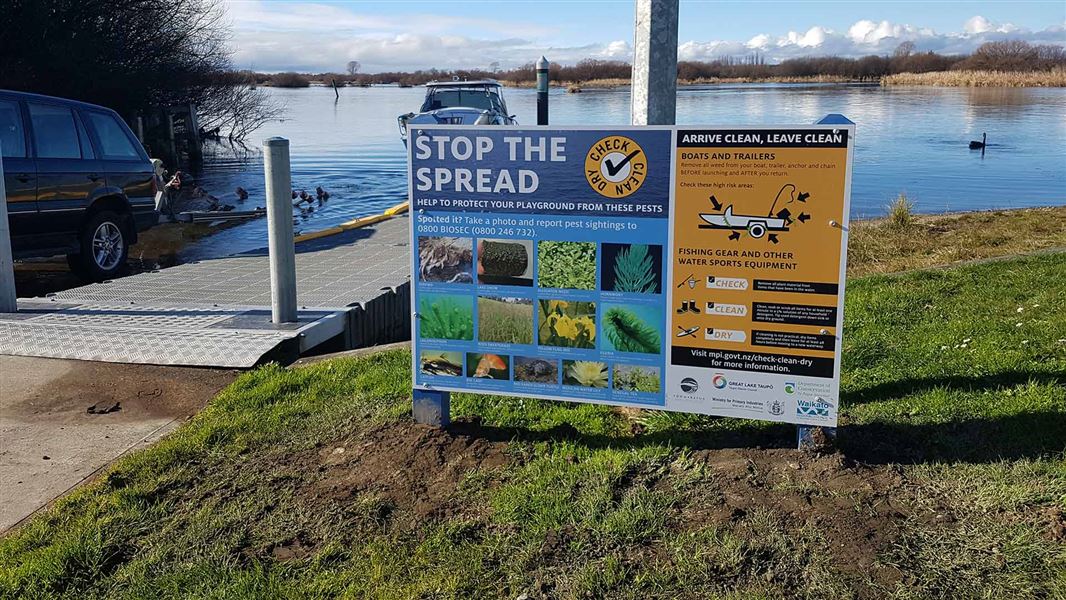New Zealand’s freshwater ecosystems face many threats – pollution, deforestation, loss of habitat, changes in land use, sedimentation, nutrient enrichment, and the impact of invasive freshwater animals and plants.
Invasive freshwater pests reduce water quality, compete against and feed on native freshwater fish, invertebrates, and plants, contribute to erosion and increase nutrient levels in New Zealand’s waterways.
It can be hard to detect these species until they are already an established problem.
You can help – report a pest species
Help from the community really helps us in our fight for freshwater biodiversity. If you spot a freshwater pest, or have concerns you have seen one, here is what you can do:
Contact MPI 0800 80 99 66 or DOC 0800 DOC HOT (0800 36 24 68) with information such as:
- a photo (or details of the pest’s appearance)
- the area where the fish or plant was seen (name of lake or river, flow, depth, map coordinates)
- approximate number or size of the population or patch (plant cover).
Prevent the spread – clean your gear
Cleaning your gear after you've been in and around waterways can help prevent the spread of freshwater pests. Use the 'Check, Clean, Dry' method to make sure you reduce the chances of spreading freshwater pests.
Lindavia is an invasive freshwater alga that produces a sticky mucus known as ‘lake snow’.
Partners
Freshwater pest organisations, research and legislation
We work with other organisations, run a research programme and follow guidelines and legislation.
Other freshwater pest species
Learn about animal and plant species that are considered freshwater pests and what you can do to help get rid of them.
